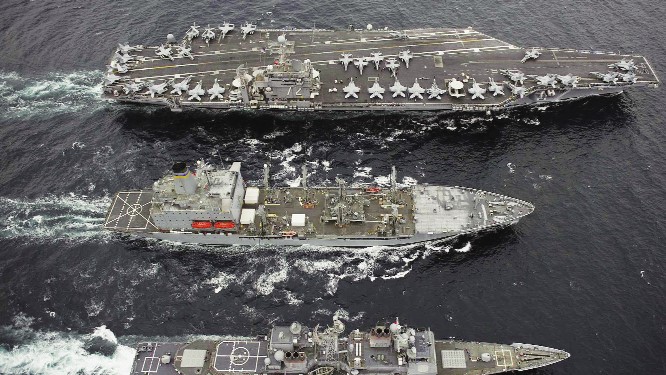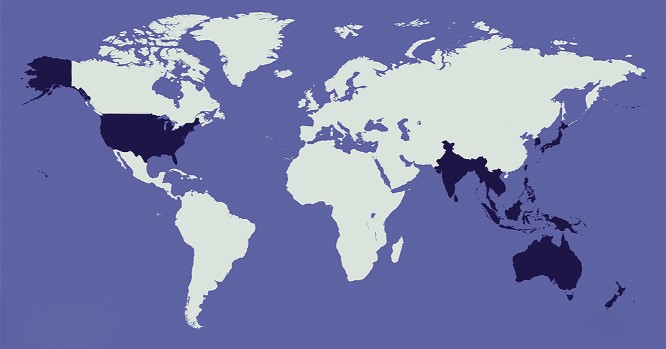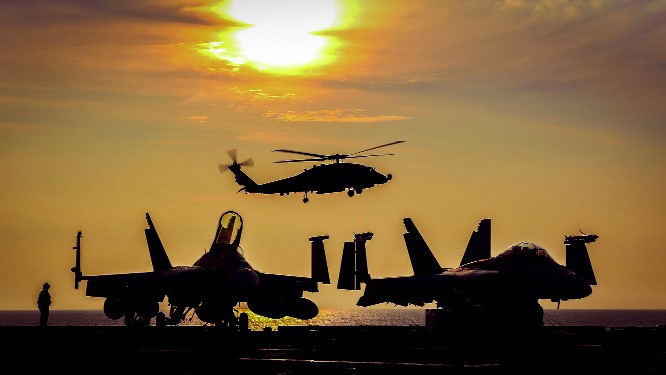- Under IPS, USA seeks to build a greater partnership with Bangladesh in areas of defense, development, security, trade, investment and governance.
- USA is ready to support Bangladesh to meet its Military Forces Goal 2030.
- Washington remains firmly beside Dhaka on Rohingya issue.
- Washington for a robust and enduring relationship with Dhaka in the days to come.
BY Bashir Ahmed
The United States has come forward with a new vision – ‘The Indo-Pacific Strategy’ that can ensure economic development and fix the security concerns for countries around the Indian and Pacific Oceans. If Bangladesh becomes a part of the greater vision of the IPS then the economic and security parameters will be enhanced by a bilateral cooperation with the United States. Under the initiative, the United States seek to build a greater partnership with Bangladesh in areas that include defense, development, security, commerce, trade, investment and governance. Brent T. Christensen, Counselor for Political and Economic Affairs and Miles A. Baker, Senior Defense Official and Defense Attaché of US Embassy in Dhaka assured so in an interview with Bangladesh Defence Journal.
Recently, these two high officials of the US administration sat for an exclusive interview with Bangladesh Defence Journal at the US Embassy in Dhaka focusing on various issues including the Indo-Pacific Strategy (IPS), the potentials of IPS for Bangladesh, enhancing defense cooperation, negotiations on two proposed defense agreements- General Security of Military Information Agreement (GSOMIA) and Acquisition and Cross-Servicing Agreement (ACSA), building partnership on economic development, resolving the Rohingya crisis etc. They also elaborated their viewpoints about the Chinese project– the Belt and Road Initiative (BRI). The officials outlined the future relationship between Bangladesh and USA in the interview.
Enlightening on the Indo-Pacific Strategy, the US officials said that the United States have a vision for the Indo-Pacific region that is comprised of independent, strong and prosperous nations – all the ideals that Bangladesh aspires to. The US administration has made this country commitment on priorities for the region and for US investment assistance.
They said, “USA is an Indo-Pacific nation, and we have a long border on Pacific Ocean. For 7 decades, we built this region economically and commercially for security cooperation and enhanced our investment.”
“The vision of Indo-Pacific Strategy, in fact, focuses on three broad pillars: economy, security and governance,” added the officials.
Under the economic priorities, the US government has launched several initiatives to create conditions for more private sector investment in countries like Bangladesh in various fields, especially in energy sector.
In the security perspective, USA is ensuring its partnership with countries like Bangladesh to promote regional stability, advance maritime security, ensure freedom of navigation and overflight, and addressing shared threats such as transnational crime and terrorism. It also promotes shared respect to the sovereignty of the partnering countries.
In terms of governance, USA sees transparency and good governance as key issues which goes hand in hand with economic development. Weak institutions, corruption and poor working condition are risk for business, trade and investment. Ensuring good governance can help to promote economic growth and increase trade and investment.
“So, we are very pleased to help and support partners like Bangladesh in these areas and work together on the shared vision for the Indo-Pacific Strategy,” noted the officials.
“We are looking forward working with our key partners to build an open and free Indo-Pacific region that respects principles such as peaceful resolution of disputes, freedom of navigation, an open and transparent investment environment and strong and responsible governing institutions,” they added.
Responding to a question on how Bangladesh can be benefited from the Indo-Pacific Strategy, the US officials said there are many different areas in which Bangladesh will be benefited collaborating in the Indo-Pacific Strategy.
“Of course, freedom of navigation and lawful use of maritime spaces are something very important for both Bangladesh and USA. Private sector led growth and development is also important to both the nations, specially for Bangladesh when Bangladesh is working towards achieving its development goals – becoming a middle-income country,” they said.
The officials mentioned, “The US government is in vision working with Bangladesh for sustainable and high-quality infrastructure, rule of law and peaceful resolution of disputes. We are also in vision to cooperate with Bangladesh under the three main pillars of our Indo-Pacific Strategy-security, economic issues and governance,”
“We see a lot of potentials to expand our commercial relationship with Bangladesh. As part of the Indo-Pacific related assistance, we are looking forward to various programs and enforcing some common standards and rules that can help to strengthen the economic ties between Bangladesh and USA,” they said.
“We think, working side-by-side, exchanging ideas, and sharing best practices, U.S. and Bangladeshi partners can grow together in a global economy, creating opportunities to expand markets and take businesses to the next level,” they noted.
“On security side, we have expanded our foreign military financing and other form of assistance to Bangladesh and other countries in the Indo-Pacific region as part of our security efforts,’ added the officials.
When asked if the Indo-Pacific Strategy can fix Bangladesh’s economic woes and security concerns, the US officials emphasized that building stronger commercial ties, strengthening trade and investment between the two countries can help Bangladesh to continue its rapid economic growth.
“We see things like Biman’s purchase of the new Boing 787 Dreamliner jets, US company Excelerate Energy for LNG gasification and other projects that are concrete examples of strengthening our trade and investment ties. We are looking at other areas where we can expand our cooperation, like energy, Agra-business, coal chain, dredging and US environmental technology – all those would help Bangladesh to ensure its economic development,” they explained.
The officials further said, “Our colleagues from USAID have launched a study identifying priority areas of Bangladesh for growth and tracking new investment. We are looking to some deals to be finalized very soon that will carry a powerful message to the US companies that are interested to do business in Bangladesh.”
The Indo-Pacific Strategy also relies on shared security. The US government is enhancing its support to Bangladesh in areas like maritime security, counter-terrorism, cyber security and capacity building on various security aspects.
“We allocate security assistance to help Bangladesh to improve its coastal radar system, modernize and enhance its patrol boat fleet, and provide training and support of expanded maritime interdiction as part of our Bay of Bengal initiative. We are also cooperating with Bangladesh in its internal security,” the officials noted.
When enquired about the perception that the Indo-Pacific Strategy is aimed to countering China, the US officials said there is a perception that Indo-Pacific Strategy is aiming to countering China. But our Ambassador Earl R. Miller has said very clearly that it is not a competition between us and China.
“You know, we are willing to work with any country in the region and sharing our values for a free and open Indo- Pacific. It is something of an inclusive vision where there is no competition with China. Our vision for a free and open region excludes no nation. We welcome constructive participation by all countries that uphold an international system based on clear, fair, and transparent rules. We’re trying to do everything we can in helping our partners,” they clarified.
Replying to a question on Indo-Pacific Strategy and the Chinese project- Belt and Road Initiative (BRI) as being contentious to each other, the US high officials told that even though the Indo-Pacific Strategy has been characterized as a vision in response to China’s Belt and Road Initiative (BRI) but the Indo-Pacific Strategy is absolutely a formidable and inclusive strategy.
“We are working under a rules-based on international order for security, prosperity and stability of all the countries in the region that may include China,” they noted.
They also mentioned that the Indo-Pacific Strategy seeks to preserve the international rules-based order as a facilitator of free, fair and open Indo-Pacific. They further mentioned that those rules-based systems have once facilitated the rise of both China and India as examples of large expanding countries, and more countries will be doing so over many more decades.
“So, the Indo-Pacific Strategy now seeks to preserve the same state of rules-based international order to facilitate the rise of countries like Bangladesh,” added the officials.
Elaborating the US position on the issue, they said, “Under this initiative, every nation in the region – large or small – can negotiate with any country by protecting their sovereignty and create its own destiny in achieving the development goals without ceding to one dictated by any other country. So, our clear view is that we are not in a competition with anyone.”
When asked about the US position on Bangladesh’s decision in principle to be involved both in the IPS and the BRI, the US officials emphasized on maintaining the transparency and following the international rules. They elaborated that USA always welcomes countries having good relations, economic ties with all countries as long as those ties are commercially motivated, transparent, follow the international rules like those of World Bank, International Monetary Fund and Asian Development Bank.
“If China is prepared to support economic development with international standard, there are many ways to work together. So, if Bangladesh wants to build relations with its neighbors for economic development following international rules in a transparent manner, we will welcome and encourage that initiative,” viewed the officials.
When asked to know about the US views on the recently signed MoU between Dhaka and Delhi that will allow India to install coastal surveillance radar system in the Bay of Bengal in Bangladeshi territory and how this move is being related to the Indo-Pacific Strategy by some analysts, the high officials expressed that USA wants Bangladesh to be able to make its own sovereign choices. Bangladesh needs its own vision and own path to be associated with Indo-Pacific Strategy.
“We encourage and reaffirm principles on IPS to continue our negotiations with our like-minded partners for a shared, peaceful and prosperous future in the region. We encourage Bangladesh to choose its own path for bolstering its economic development and security,” they added.
In the interview, the officials of US administration highlighted the present defense relation between Bangladesh and USA. They also outlined the future partnership in this field.
The officials said there is a robust and enduring partnership between the armed forces of Bangladesh and USA. “Under the military-to-military cooperation, the two countries are engaged in training, peacekeeping, joint exercises, cooperation on containing terrorism and extending humanitarian service for disaster victims,” added the officials.
Washington has also been providing financial supports for members of the Bangladesh Armed Forces to attend military professionalization courses in the US and the wider Indo-Pacific region over the years.
“And for going forward, we see an enormous potential for a greater cooperation across our defense partnership with Bangladesh. We are engaged with the government of Bangladesh to identify areas for extending cooperation based on mutual interest between our two countries in support to Bangladesh’s priorities and aspirations,” noted the officials.
Responding to a query on Bangladesh’s interest to purchase US made advanced military hardware to bolster and modernize its defense capabilities, the US officials said the USA seeks to support Bangladesh’s Forces Goal 2030 as Bangladesh government looks to modernize the equipment system that is used by its military and security forces.
“So, any platform specific acquisition, we have to refer you to the government of Bangladesh. Because, it’s their choice of what kind of equipment they need and what kind of information they intend to release on this issue at this moment. We can just say, we are ready to support Bangladesh to meet its Military Forces Goal 2030 as it seeks to modernize its military equipment,” they added.
It is, however, noted that Bangladesh has proposed to the United States to purchase multi-role combat fighters, Apache attack helicopters, surface-to-air missile systems and other advanced military hardware to meet Bangladesh Military Forces Goal 2030. Both countries are currently negotiating two agreements – ACSA & GSOMIA that are required as per the US law for the purchases to go ahead. The initial request from Bangladesh for the advanced equipment was made back in 2018.
About the latest state of the two proposed defense deals- ACSA & GSOMIA, the officials noted that negotiations are continuing between the government of Bangladesh and USA regarding these two proposed foundational defense agreements. “So, there are still negotiations, and we cannot give more details right now. But we are hopeful to conclude the deals,” they said.
GSOMIA is a foundational government-to-government agreement that permits greater collaboration and sharing of classified military information in the form of intelligence and classified information of US defense equipment. It’s a reciprocal legally-binding agreement that ensures governments understand and commit to protecting classified military information.
The GSOMIA does not obligate governments to share classified information or material. It ensures protection of the information shared by partner government. The US has GSOMIA agreements with 76 countries, including some countries in South Asia.
ACSA is a kind of deal that will allow US and partner nations’ forces procure and pay for common types of supplies and services. It could cover everything from food, water, clothing, transportation, training, petroleum, ammunition, maintenance to medical services. ACSA does not in any way commit a partner nation to military action nor does it authorize stationing of ships, aircraft or military personnel in foreign countries. It only serves to simplify procurement agreement, logistic support, supplies, and services between partner forces. The USA has ACSA agreement with over a hundred countries throughout the globe, including India and Sri Lanka.
When questioned if the US military equipment is viable for Bangladesh considering the high prices, the US officials explained the US defense sale system saying, “You need to know how the USA does for its defense sale. We don’t just sale an item or equipment. What we sale that is called a total package approach. So, we won’t just sale whatever item or equipment Bangladesh desires to purchase from USA. We will not provide any item to Bangladesh unless we can have a package that includes spare parts for years to come, trainings, security assistance etc.”
They noted, “We also see how Bangladesh will ensure the safety and security of US equipment. We will support Bangladesh in building infrastructure to secure our security equipment. So, we are not going to sale only a piece of equipment. We will make sure a total package for Bangladesh. In that context, we see that the price lies in the package would be competitive with other countries, or even lower.”
“The real advantage in US system is giving a complete package that no nation can offer,” claimed the officials.
Brent T. Christensen and Miles A. Baker also talked about the Rohingya issue and reaffirmed the US position to remain beside Bangladesh to resolve the crisis. They expressed their appreciation to the government of Bangladesh and Prime Minister Sheikh Hasina for her commitment to support the Rohingya refugees to the required international standards and her commitment towards their voluntary returns.
“We realize that it is a very challenging issue for Bangladesh. It is upon Myanmar for creating this crisis. Everybody wants Rohingyas to return voluntarily to Myanmar in a dignified, safe and sustainable condition,” told the officials.
They said USA is continuously pressurizing Myanmar for the safe repatriation of the Rohingyas and taking necessary steps to reduce the distress faced by the locals.
“We are taking steps and also working with international community to hold those responsible for the Rohingya crisis ‘accountable’. On December 10, 2019, we imposed sanctions on Myanmar military leaders, including the commander-in-chief for committing serious human rights abuses against the Rohingya under the Magnitsky Act as part of our steps. So, we are trying and putting continuous pressure to hold accountable those who are responsible for the cruel actions in Rakhine state,” noted the officials.
Outlining the future political and strategic relationships with Bangladesh, the high officials of US administration said the USA sees an enormous potential for a greater cooperation with Bangladesh.
“We are engaged with the government of Bangladesh to identify areas for extending cooperation based on mutual interest between our two countries in support to Bangladesh’s priorities and aspirations. Maritime security, humanitarian assistance, disaster response, support for peacekeeping operations, counter-terrorism and defense professionalization are the baseline to expand our defense and other relationship with Bangladesh,” they noted
“Washington would like to see a robust and enduring partnership with Dhaka in all areas in the days to come,” added the officials.




